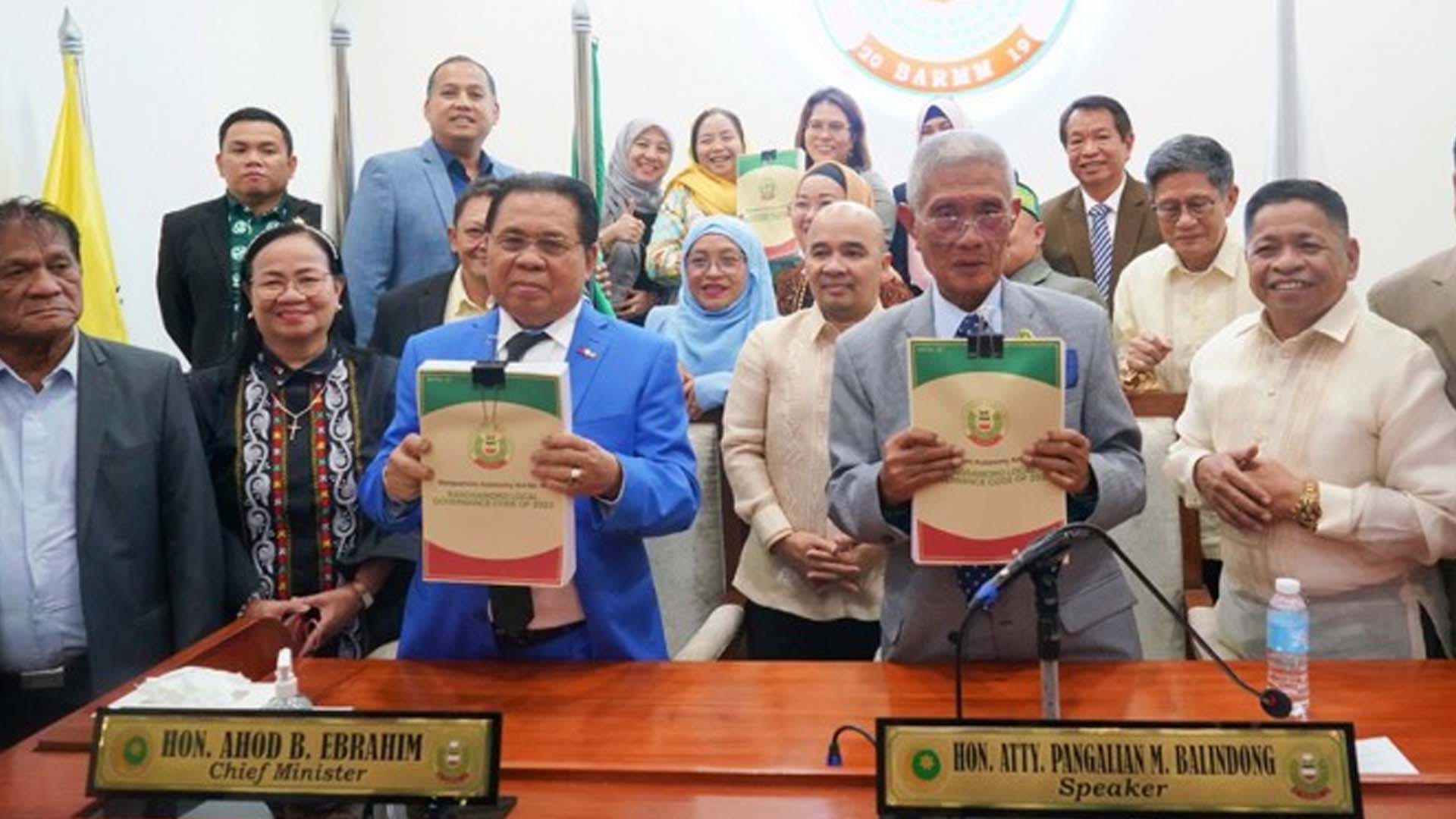Bangsamoro Autonomous Region in Muslim Mindanao (BARMM) Chief Minister Ahod Balawag Ebrahim on Thursday night signed into law the Bangsamoro Local Governance Code (BLGC).
The BLGC or the Bangsamoro Autonomy Act 49 is one of the seven priority codes being pushed by Ebrahim during the BARMM transition period up to 2025.
Lawyer Raissa Jajurie, chair of the Bangsamoro Transition Authority (BTA) Committee on Local Government, pointed out the significance of passing the code, noting that the BARMM has a unique governmental setup compared to other regions in the country.
She also emphasized five key points of the bill – the empowerment of local government units and local communities; facilitation of the gradual devolution of power; equitable revenue sharing; promotion of democratization; and supervision between the Bangsamoro government and LGUs.
“At the heart of the code is the grant of powers to LGUs,” Jajurie said.
Ebrahim said the code “will not only redefine but also solidify the autonomous region’s governance landscape by forging a well-defined and harmonious path between the regional government and the LGUs.”
During the amendments period in the plenary, the Bangsamoro Parliament retained “governance” instead of “government” in the code to highlight citizen participation.
Bangsamoro Transition Authority (BTA) parliament member Susana Anayatin who represents the Christian settlers in the 80-man BTA, was elated that the draft bill is now a law.
She said the law reflects the BARMM motto that “no one will be left behind.”
BTA Speaker Pangalian Balindong said the code is more than just a set of rules, describing it as “a manifestation of our commitment to the Bangsamoro people and their march towards a brighter future.”
The code also outlined the disqualifications of individuals running from elective local positions.
Family members of incumbent local officials running for elective positions in the second civil degree of consanguinity or affinity, whether full or half-blood, are prohibited from running for the same provincial, city, municipal, or barangay positions.
Candidates and their spouses are also not permitted to run for local elective office in the same province, city, municipality, or barangay if none of them is related to an incumbent, but is related to each other within the second degree of consanguinity or affinity, or if all incumbents are related within the same degree.
Before its approval, the BLGC underwent several deliberations, including eight public consultations from the regional to national levels and 23 days of deliberations at the committee level.
So far, the BTA, the provisional lawmaking body of BARMM, has successfully enacted five of its priority codes, including administrative, education, civil service, electoral, and local governance codes.
Two remaining priority bills – the revenue and Indigenous Peoples’ codes – are expected to be passed within the year. (PNA)









